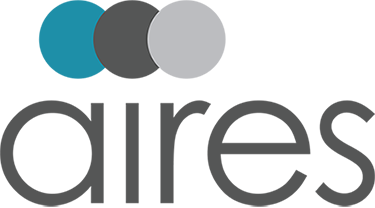You’ve heard the phrase before; “motherhood is a full-time job!” There are schedules, learning, activities, enrichment, and making sure that everyone is cared for and happy. But what about when you also have a job in an office? That means also ensuring you are meeting deliverables and performing your daily work functions. According to a study done by Welch’s, working mothers clock an average of 98 hours a week. And that’s assuming their paying job is only 40 hours. If you’ve done the math in your head, that’s right – working mothers have two full time jobs! For many mothers around the globe, there may have been a sense of relief and security with an established routine complete with calendars brimming with the comforting hum of structured life.
But then, COVID-19 swept the globe, leaving many people without those same securities but with the exact same responsibilities in their professional lives. So, what’s a mum to do? Aires is proud to announce our Mobility Mums Webinar Series in which we discuss the rewards and challenges of motherhood in global mobility and especially during a pandemic.
Our first week’s guest is Evelyn Ortiz, EA, GMS-T (Sr. Manager, Global Mobility and Tax Program of Gap Inc.). Evelyn shared the unique challenges she and her family endured when attempting to balance work, school, and home being in one place. Here is how they worked through it:
- Phase one: Underestimation. Like many of us, Evelyn underestimated the breadth of the pandemic. At first, she and her family took it as an opportunity to slow down and spend more time together at home, which was sometimes difficult pre-pandemic with their robust schedules. They were content to take safety precautions and continue on with their daily lives in a responsible way. That was, of course, until schools closed.
- Phase two: Chaos. As working professionals, we may be comfortable to tote our laptops back and forth from our home office to our physical office without a second thought, but what about children who spend most of their weekdays in school? What is distance learning anyway? Schools all over the globe grappled for a contingency plan to ensure children stayed on curriculum and on course. Evelyn’s three boys were suddenly without their daily routines and in-person lessons. Naturally, this sparked worry about balancing learning with daily lives. This led to Evelyn and her family feeling wrapped up in chaos caused by the realization that things were changing; countries were rapidly undergoing quarantine and stay-at-home directives, and schools reopening did not seem hopeful. So, how were they going to work with that?
- Phase three: Acceptance. A strong family unit is made up of communication, and that is exactly what Evelyn and her family did. They accepted that COVID-19 was the “new normal” for the time being and strategized about how to get through this unprecedented time. Her family’s creative solutions are inspiring to read. They included:
- Scheduled daily hikes with her boys. This ensured they got to experience nature, stimulate their brains and bodies, and also exercise. The boys loved this daily routine and in a place like sunny California, hiking is pretty surreal.
- Created a family Google Calendar. Evelyn’s family input everyone’s lessons, meetings, activities, and schedules into one shared calendar. This allowed everyone to learn to respect each other’s time and have an awareness of what was going on with the other members of the household.
- Designated responsibilities to the older children. Evelyn and her husband started including the older of the three boys in decisions and responsibilities. They loved it and Evelyn noticed that they have become more responsible as a whole!
- Evelyn also enrolled her youngest son in language lessons that keeps him busy, bilingual, and learning.
- Made a designated family night. Evelyn described “Pre-Covid” as being stretched for time to spend with each other, but now they all carve out time to have family game nights or movies to enjoy the time they have together.
EVELYN’S ADVICE TO OTHER MUMS (AND PEOPLE AS A WHOLE)
- Stop oversaturating yourself with the news. Evelyn has found not saturating herself with news has been extremely beneficial. Many of us partake in what has been aptly named “doomscrolling,” which isn’t helpful to our already-overloaded brains and can cause us to spiral with worry and anxiety. Instead, Evelyn checks the news once a day to get updates and stay informed.
- Schedule “Me Time!” Evelyn has Friday nights blocked off on the Google Calendar to enjoy some alone time. Her husband helps with the boys so that she can enjoy some time catching up virtually with friends, getting in a workout, or just decompressing from a busy week. Studies show even just 10 minutes of designated alone time does wonders for our brains, allows us to reset, and ultimately makes us better contributing members of our household.
To quote Evelyn, “happiness is a choice and optimism is a choice” which is very clear in the way she and her family worked together to create a routine that works for them. Check back here for more updates from more of our strong, hard-working, and dedicated mobility mums.


